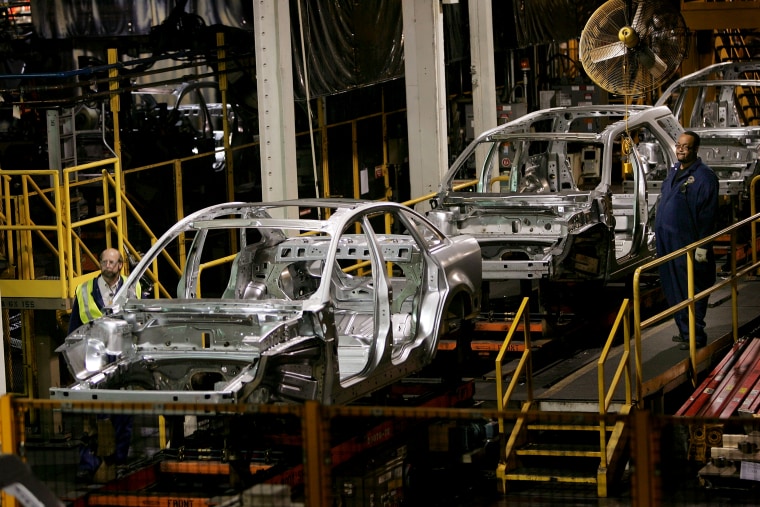President Donald Trump lambasted Ford on Wednesday for making a deal with California to enforce strict fuel economy standards.
The latest attack comes shortly before the administration was set to roll out new standards for Corporate Average Fuel Economy, or CAFE, which would significantly lower the mileage requirements set under President Barack Obama. The agreement California regulators reached with Ford, Honda, BMW and Volkswagen is looser than what is currently in place but stricter than what the current White House plan is calling for.
In a tweet, Trump said Ford founder Henry Ford would be “very disappointed if he saw his modern-day descendants wanting to build a much more expensive car, that is far less safe and doesn’t work as well, because execs don’t want to fight California regulators.”
The tweet referenced claims made last year by officials from the Environmental Protection Agency and the National Highway Traffic Safety Administration, both of which jointly regulate U.S. fuel economy standards. A key argument for reducing the 54.5 mile per gallon target set for 2025 was that it would result in more highway deaths by lowering the cost of fuel and thus encouraging Americans to drive more.
That and the other arguments made by the EPA and the NHTSA came in for ridicule at the time by environmental, consumer and other groups. More significantly, the sharp rollback proposed for CAFE was not embraced by the auto industry — even though carmakers had questioned whether there might be a need for a more modest rollback in the Obama-era guidelines.
Ford and the three other automakers appeared to have found a happy middle ground in the deal they have worked out with California. A significant part of that agreement will see the carmakers move ahead on plans to bring electric vehicles to market. Ford, for one, has committed more than $11 billion to the development of battery-based cars and recently announced a deal to share an all-electric platform developed by erstwhile rival Volkswagen. VW, for its part, plans to have about 50 different battery cars in production by the middle of the coming decade.
Trump’s reference to the higher price of battery cars is correct for now, with battery-based vehicles typically costing thousands more than comparable gasoline-powered models. But even that is expected to become a moot point in the relatively near future. Mark Reuss, the president of General Motors — which did not join in on the California deal — recently predicted that costs will reach parity in the near future, perhaps before mid-decade. And that doesn’t factor in possible federal and state incentives or the lower cost of energy for a battery vehicle.
For its part, Ford defended its decision to join the California deal, saying in a statement, “This agreement with California provides regulatory stability while reducing CO2 more than complying with two different standards.”
Automakers have to plan their product and manufacturing strategies years in advance, so stability is a key issue. Automakers collectively worry that any cuts to fuel economy standards announced by the Trump administration would be quickly tied up in court and could be abandoned entirely should the president lose his re-election bid next year. If so, they could wind up having to reverse course once again.
California isn’t the only state that has tried to reach a deal with the auto industry. Late last month, Colorado reached a deal with key manufacturers that will see the state adopt California’s zero-emission vehicle rules.
Industry analysts believe most manufacturers will continue to proceed with their current mileage and product plans unless and until they see that the expected Trump rollback will stay in place. Even then, the new deals with California and Colorado mean that at least some manufacturers could stick with more aggressive targets.
The fact that the president targeted just one of the four carmakers involved in the California deal suggested he is continuing a feud that began when he was ramping up his campaign for the White House. Trump repeatedly called out Ford over its decision to end production of several passenger car models, including the Focus sedan, in Michigan and move it to Mexico. The automaker subsequently announced it would not only scrub plans for a second Mexican plant but also kill off the Focus and most other passenger car models entirely to focus on hot-selling SUVs.
